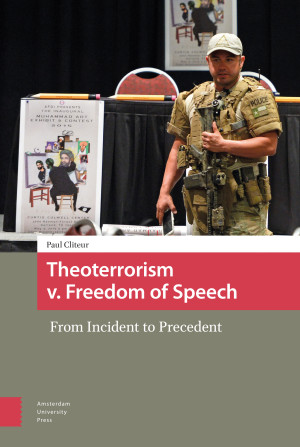"Cliteur provides extensive analysis of [the Rudi Carrell] episodes and their implications, before exploring further theoterrorist attacks on expression, including the slaying of the filmmaker Theo Van Gogh in 2004, the "Danish Cartoons Affair" of 2005, and the murderous attack on the staff of Charlie Hebdo in 2015. And he spends considerable space examining the arguments of those in the West who have defended the suppression of blasphemous speech on the grounds that great offence may be taken by religious believers."
- Rumy Hasan, August 2019, Quillette.com
"Academics limited by political correctness" - read Maarten Boudry's opinion piece for the
NRC here.
"Paul Cliteur has written an important book. It’s a disturbing and enlightening read. Disturbing because it unveils how Western democracies since the mid 80s have reacted with confusion and disorientation when freedom of expression has been under attack. Enlightening because Cliteur brilliantly deconstructs the cognitive dissonance among politicians, intellectuals and the media and provides us with the analytical tools to understand what’s at stake. Cliteur lays bare the logic and consequences of our muted and incoherent response to threats of violence in the name of God. A book about freedom and safety for all of us."
- Flemming Rose, Senior Fellow at the Cato Institute, Washington D.C.
"A topical and timely book, presented in a way that is accessible and even entertaining - though also worrying in the tendencies that it identifies."
- Russell Blackford, Senior Lecturer at the University of Newcastle.

